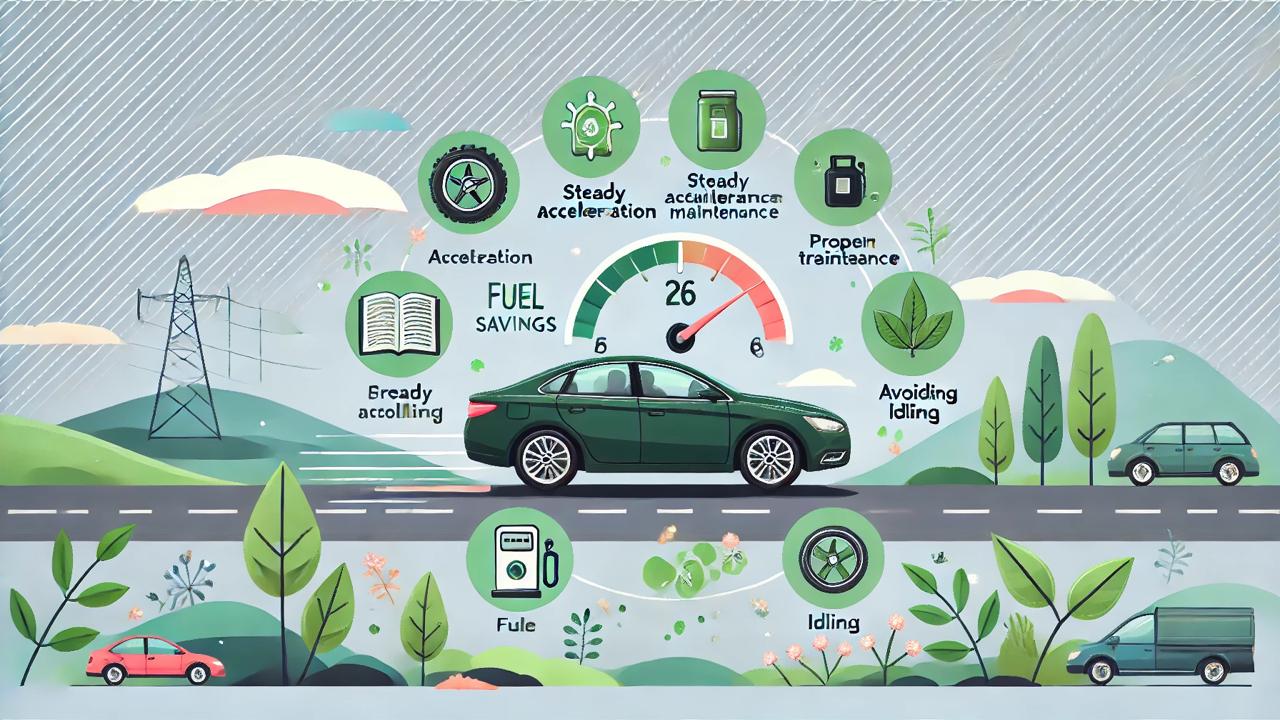Ways to Improve Your Driving Habits for Fuel Efficiency

With fuel prices constantly rising, drivers are looking for ways to save on gas. Revisiting your driving habits can make a significant difference, both environmentally and economically. Here are some tips to help you save fuel:
-
Control Your Speed
Traveling at high speeds causes the engine to consume more fuel. Research shows that driving above 100 km/h can increase fuel consumption by up to 15% compared to driving at lower speeds. Therefore, adhering to speed limits and maintaining a steady speed can increase fuel savings. -
Reduce Sudden Braking
Sudden braking negatively impacts fuel efficiency. A good driver prefers using engine braking rather than sudden stops. This means accelerating carefully and adjusting your distance to avoid sudden braking. Additionally, slowing down in advance at traffic lights can help save fuel. -
Avoid High RPM Driving
When the engine runs at high RPM, it leads to higher fuel consumption. By monitoring your tachometer, you can prevent the engine from running at unnecessarily high RPMs. Shifting gears early helps the engine work more efficiently. -
Maintain Your Vehicle
Regular vehicle maintenance ensures your engine runs efficiently. Basic checks like air filters, tire pressure, and oil changes can improve fuel efficiency. Keeping your tires properly inflated improves road grip and reduces fuel consumption. Regular maintenance also helps use fuel more efficiently. -
Avoid Carrying Heavy Loads
Carrying unnecessary weight in your car increases fuel consumption. Instead of filling your trunk and car with unnecessary items, only carry what you need. Also, placing extra loads on your car’s roof (e.g., roof racks) increases wind resistance, which in turn increases fuel consumption. -
Reduce Wind Resistance
Roof racks or external accessories increase wind resistance, leading to higher fuel consumption. Especially at high speeds, removing these accessories can save fuel. Additionally, opening windows disrupts the aerodynamics of your car and negatively affects fuel efficiency. -
Avoid Heavy Traffic
Traffic jams and constant stop-and-go driving increase fuel consumption. Try to avoid driving during peak traffic hours. Exploring alternative routes to avoid congested intersections, traffic lights, or narrow roads can help you use less fuel.
Conclusion
Fuel savings are not just a measure against rising gas prices, but also an opportunity to develop environmentally friendly driving habits. These habits not only protect your wallet but also extend your vehicle’s lifespan, ensuring long-term savings. By improving your driving habits, you can reduce fuel consumption and save more on every trip.










